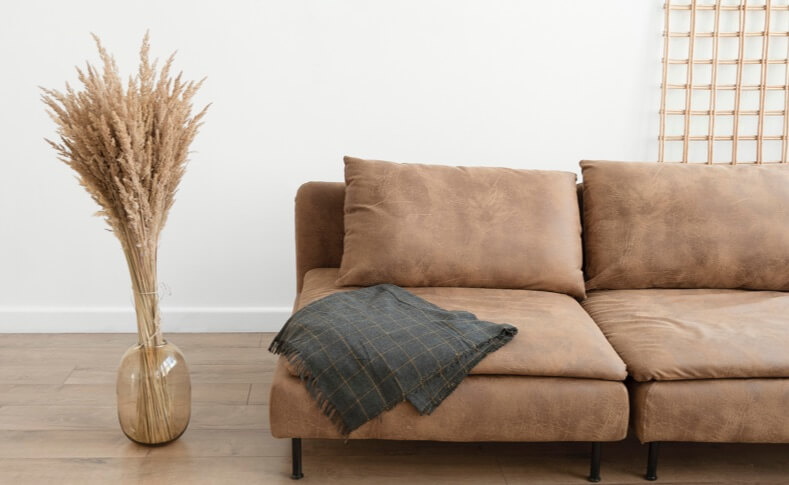A Clean Home Promotes Better Mental Health

A Clean and Organized Home Has Health Benefits
Maintaining a clean and organized home has more benefits than you would think. A clean house, it turns out, is actually good for you! Research has shown that cleanliness, or the lack thereof, directly impacts mental health (Saxbe, 2010). Other studies have shown that a clean home also affects physical health as people with clean homes tend to be healthier than those with cluttered and messy homes (Indiana University, 2013). If you’re feeling anxious, stressed, or overwhelmed, take a look around you. Your living space may be contributing to your duress.
Your Environment Impacts Your Health
Environmental uncertainty and uncontrollability are hard-coded sources of stress for humans. It’s part of our DNA and originates from our most primitive instincts. We continually scan our environments for usable information that will benefit us in some way. A study by researchers at Princeton University found that clutter makes it difficult for individuals to focus on a particular task (McMains, 2011). Clutter and disorganization can be very distracting and make completing tasks difficult. When this happens continually, you can start to feel bogged down by your inability to meet goals and complete projects. Settings that are in disarray and contain many focal points are much more difficult for our brains to scan for helpful information. Our response to this form of uncertainty is ritualization, which limits our activities and expressions to repetitive and predictable patterns. We do this to regain a sense of control and order when faced with chaos, be it chaos from our immediate setting or chaos from life (Lang, 2015).
A Disorganized Home Can Contribute to Depression
Some studies have found that women who described their homes as cluttered or filled with abandoned projects were more likely to be depressed and fatigued than women who described their homes as restorative and restful (Saxbe, 2010). Women who reported having messy or cluttered homes also had increased stress hormones such as cortisol levels. The same studies have suggested that clutter makes focusing on a particular task difficult (Saxbe, 2010). Increased clutter and mess overwhelm the individual’s visual cortex and make useful information more difficult to distinguish from objects unrelated to the task. Studies have also shown that having clean sheets and a made bed are associated with having a good night’s rest (National Sleep Foundation, 2012). Better rest helps promote a whole host of health benefits, including reduced stress and an improved mood.
Cleanliness and Organization Improve Focus
In many ways, clutter and mess are linked to negative emotions like tension, irritability, and confusion, while an organized and clean house promotes positive emotions like calmness and comfort (Saxbe, 2010). In our minds, clutter can represent unfinished business, and the irresolute nature of this environment can be highly stressful for some. The absence of clutter, however, can help to reduce overstimulation produced by the presence of too many visual stimuli. The decrease in overall stimuli enables increased focus and an enhanced ability to concentrate. For many, cleaning and organization can drastically help alleviate stress and allow them to focus on more significant concerns in their lives. If you’re having trouble focusing on a task, try and declutter your workspace. Organizing and decluttering your office or desk can make concentrating and completing your work easier.
A Clean Home Improves Your Well Being
Cleaning has a number of positive effects on your mental health. It gives you a sense of control over your environment and allows you to define and shape the space you’re in. It also improves mood and gives you a sense of satisfaction and accomplishment even if you aren’t the one who cleaned. This is especially true in times of high stress or chaos, as a clean house reduces the anxiety you may be feeling from life’s uncertainties. So if you’re feeling stressed out or overwhelmed, take a look at your surroundings. It might be time to do some house cleaning and organizing.
References
- Saxbe DE, Repetti R.No place like home: home tours correlate with daily patterns of mood and cortisol. Pers Soc Psychol Bull. 2010 Jan;36(1):71-81. doi:10.1177/0146167209352864. PMID: 19934011.
- National Sleep Foundation.2012 Bedroom Poll.
- Indiana University.Tidier homes, fitter bodies.
- Lang M, Krátký J, Shaver JH, Jerotijević D, Xygalatas D.Effects of anxiety on spontaneous ritualized behavior. Curr Biol. 2015 Jul 20;25(14):1892-7. doi:10.1016/j.cub.2015.05.049. PMID: 26096971.
- McMains, S., & Kastner, S. (2011). Interactions of top-down and bottom-up mechanisms in human visual cortex. The Journal of neuroscience : the official journal of the Society for Neuroscience, 31(2), 587–597. https://doi.org/10.1523/JNEUROSCI.3766-10.2011

